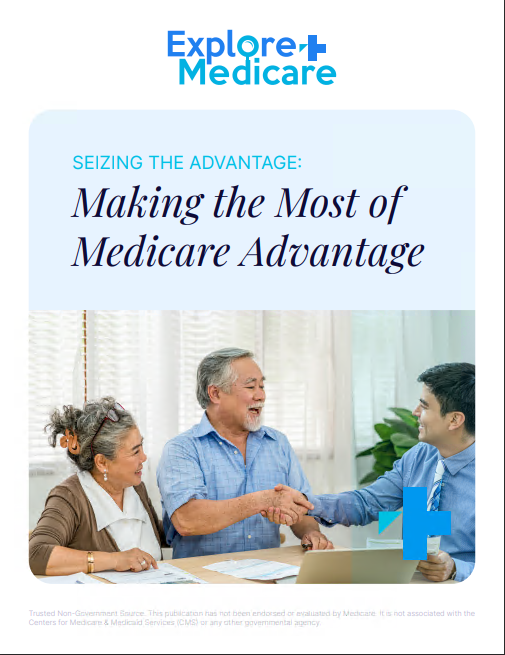Introduction to Financial Assistance Programs
Financial assistance programs are invaluable resources for Medicare beneficiaries, offering crucial support in covering healthcare costs. These programs cater to individuals facing financial constraints, ensuring they can access necessary medical services and medications without undue financial strain. Understanding the breadth and scope of available assistance programs empowers beneficiaries to make informed decisions about their healthcare.
Medicare Savings Programs (MSPs)
Medicare Savings Programs (MSPs) constitute a lifeline for many low-income Medicare beneficiaries. These state-run initiatives alleviate the financial burden associated with Medicare premiums, deductibles, coinsurance, and copayments. Among the MSPs are:
- Qualified Medicare Beneficiary (QMB) Program: Catering to individuals with limited income and resources, QMB assists in covering both Part A and Part B premiums, along with other associated costs.
- Specified Low-Income Medicare Beneficiary (SLMB) Program: SLMB targets beneficiaries with slightly higher income levels than QMB qualifiers, specifically addressing Part B premium expenses.
- Qualifying Individual (QI) Program: QI extends assistance to individuals with incomes marginally higher than those qualifying for SLMB, offering support for Part B premium payments.
- Qualified Disabled and Working Individuals (QDWI) Program: This program aids disabled individuals returning to work by subsidizing Part A premium expenses.
- Each MSP is tailored to address specific financial needs, ensuring that eligible beneficiaries receive vital assistance tailored to their circumstances.
Extra Help (Low-Income Subsidy) for Medicare Part D
Extra Help, commonly referred to as the Low-Income Subsidy (LIS) program, is instrumental in alleviating the financial strain associated with prescription drug coverage under Medicare Part D. This program offers substantial assistance with premiums, deductibles, coinsurance, and copayments for prescription medications. Eligibility for Extra Help is contingent upon income and resource thresholds determined by the Social Security Administration, making it a vital resource for individuals with limited financial means.
Medicaid
Medicaid serves as a crucial safety net for low-income individuals and families, including many Medicare beneficiaries. This joint federal and state program offers comprehensive health coverage, including services not covered by Medicare, such as long-term care, dental care, and vision care. Medicaid eligibility criteria vary by state and may encompass factors such as income, assets, age, disability status, and family size. Accessing Medicaid can significantly mitigate healthcare costs for eligible beneficiaries, ensuring access to essential services and support.
State Pharmaceutical Assistance Programs (SPAPs)
State Pharmaceutical Assistance Programs (SPAPs) play a pivotal role in facilitating Medicare beneficiaries’ access to prescription medications. These state-operated programs offer additional coverage for prescription drugs not included in Medicare Part D plans or Extra Help benefits. SPAPs vary in eligibility criteria and benefits across states, necessitating thorough research to identify available resources and determine eligibility. By supplementing prescription drug coverage, SPAPs help alleviate financial strain and ensure uninterrupted access to vital medications.
Nonprofit Organizations and Charitable Assistance
Nonprofit organizations and charitable foundations contribute significantly to easing the financial burden of healthcare expenses for Medicare beneficiaries. These entities offer various forms of assistance, including grants, scholarships, and direct financial support, to cover premiums, deductibles, copayments, and prescription medications. Examples include the Patient Advocate Foundation, Patient Access Network Foundation, and NeedyMeds. By leveraging the resources provided by nonprofit organizations, beneficiaries can access vital support to navigate healthcare costs effectively.
Medicare Advantage Special Needs Plans (SNPs)
Medicare Advantage Special Needs Plans (SNPs) cater to the unique healthcare needs of specific beneficiary groups, including those with low incomes and chronic health conditions. SNPs offer tailored benefits and services beyond traditional Medicare coverage, such as transportation assistance, meal delivery services, and care coordination. These plans provide comprehensive support to eligible beneficiaries, addressing both medical and non-medical needs to enhance overall well-being and quality of life.
Conclusion: Accessing Support for Healthcare Costs
Financial assistance programs serve as indispensable resources for Medicare beneficiaries, offering vital support in managing healthcare costs and accessing essential services. By familiarizing themselves with available programs, beneficiaries can navigate the complexities of healthcare financing with confidence and ensure access to comprehensive care. Leveraging these resources empowers beneficiaries to prioritize their health and well-being without undue financial strain.
Ready to explore financial assistance options for managing healthcare costs? Connect with a Licensed Insurance Agent today to learn more about eligibility requirements and enrollment options. Download our comprehensive eBook for valuable insights into accessing support for healthcare expenses and optimizing your Medicare coverage.

